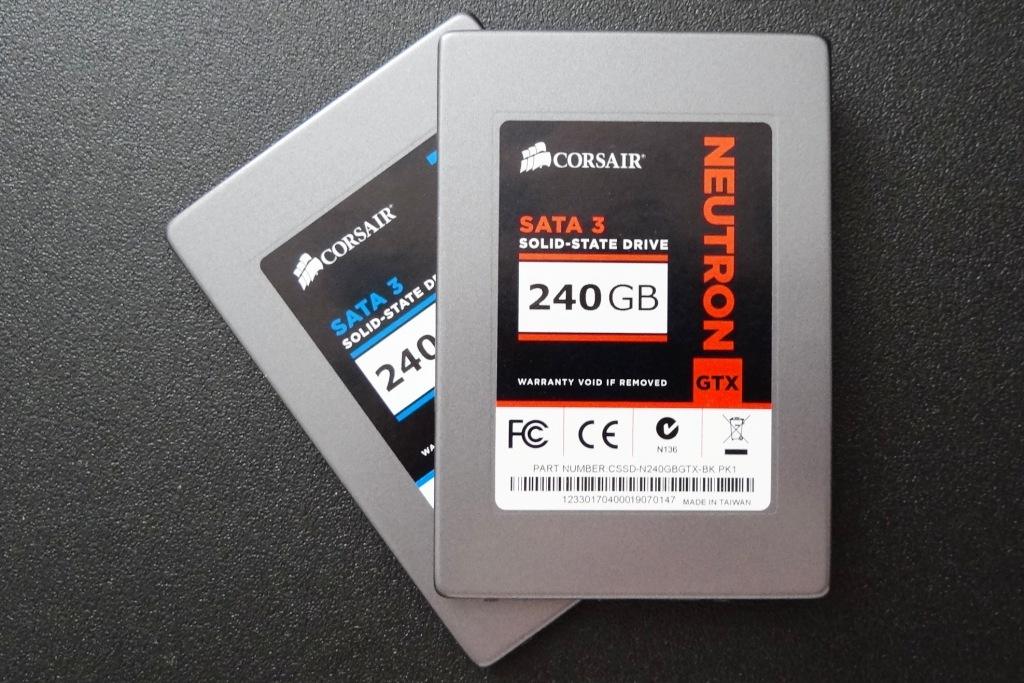REPORT ANALYSIS AND FINAL THOUGHTS
Just as they had with the ‘LSI SandForce Driven’ Force GT and then the Marvell controlled Performance Pro after that, Corsair has once again made a smart move and grabbed an exclusive with Link A Media to introduce their LM87800 controller to the world in their new Neutron family of SSDs. Both of the Neutron SSDs show strengths that we have yet to see in many SSDs and, in as much as it isn’t the norm, this product is definitely ready for prime time in it’s first showing.
In as much as the Neutron is intended to be the more value driven little brother of the higher performing Neutron GTX, one would expect that we would review them separately. This could not be the case, however, as the LAMD controller adds very specific strengths to both which leaves us with two of the top performing SSDs on the market, even though one is more value driven.
The Neutron GTX surpasses the Neutron in high sequential and 512k write transfer and that is where the differences stop for the most part. Both Neutron SSDs have great read performance and both have top tier write performance when we test in random or incompressible data; data that is typically seen in video, music and photographs. The GTX result of 474MB/s, when testing in AS SSD, is untouchable and the total point score over 1000 for both in that program is rarely seen. Looking past that, both Corsair Neutron SSDs were in the top four we had ever tested in PCMark Vantage.
Adding to this, the Neutron packaging includes a desktop adapter, mounting screws and both SSDs have a five year warranty which, as much as we would like to see it, still isn’t the norm for SSDs as of yet. This is a show of confidence for a new product and one that we feel will pay off in big dividends. The only hiccup in the entire picture may be with respect to pricing as the typical 120/128GB SSD is available now at below the $100 mark with most 240GB models being found at $200 or below as well. We should remember though that we are speaking of two of the top solid state drives on the market and still looking at ‘new release’ pricing.
FINAL THOUGHTS
Consumer SSDs were first looked at as a singular entity. With the introduction of asynchronous NAND flash memory, a divide was created where synchronous or Toggle Mode memory was geared toward the enthusiast or ‘work specific’ tasks and asynchronous memory became the more value driven alternative. We have now pushed the bar once again by separating enthusiast level memory into upper and lower tiers, the lower being the more value driven alternative. The success we have seen with Toshiba Toggle Mode NAND flash memory is becoming very evident as manufacturers create a new level of SSDs geared around this memory.
At the end of the day, our recommendation is a given as both the Neutron and Neutron SSD are of the top performing on the market, definitely not over priced, have a five year warranty and both are available and Corsair even through in the desktop adapter without adding to the price. Editors Choice!
 The SSD Review The Worlds Dedicated SSD Education and Review Resource |
The SSD Review The Worlds Dedicated SSD Education and Review Resource | 


Glad to see another SSD controller apart from Marvell that doesn’t flop under incompressable data like Sandforce does.
My next SSD will likely be a 512GB. As soon as the prices come down to $400.
some crucial m4 and sandisk 512/480gb ssd already went to 389 and 359.
the prices are 399.99 and less for some good ones
Today you can get a Crucial M4 right here at the forum store for 349.00 ,512gb.
Superb review and great shoot on picture 🙂
Great review. Thanks so much! Will look to budget one of these into my next build.
Nice review indeed.
Only one thing>they are not sata 6,else perfect 🙂
all tests are to simple for me. You did not write if neutron caches data in DRAM, what happen if power ist lost. how disk will work in real world not just brand new out of the box?
look to storagereview or anandtech tests. they try to look deeper into the subject.
not all users are buing ssd to test how fast it can write one big file to laptop. many people uses SSD as smart cache for HHDs. are neutrons good for that?